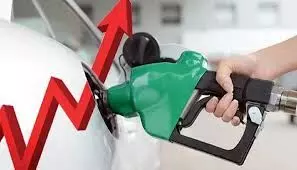- Home
- /
- Trending-News
- /
- Fuel hike: Commuters...

Some stranded commuters in the Federal Capital Territory (FCT) on Wednesday narrated unpleasant experiences they were going through, following a hike in the pump price of gasoline.
In separate interviews with the newsmen in Abuja, the commuters said the price increase had worsened the sufferings they were passing through for months, with a shortage of the product.
Supreme News reports that NNPC Ltd. Retail Management on Tuesday approved an upward review of the petrol pump price from N568-N617 per litre to N855-N897 per litre, depending on the location of their stations.
Checks by newsmen revealed that the NNPC retail stations adjusted their pumps and totems (price boards), reflecting the new price of N897 as against N617 per lite in the FCT.
The independent marketers had also adjusted their pumps, as they were now selling between N930 and N1,200.
Supreme News also reports that there has been a scarcity of fuel in the territory in the last two months, with motorists enduring a long queue to buy the product.
Following the announcement of the hike in price, queues at the few filling stations dispensing the product worsened.
Miss Amina Yusuf, a clerk in a private firm, said: “ Yesterday, I paid N1, 000 from my house in Gudu to Garki where I work, only to leave my office and realise the fare had increased by 50 per cent.
“I stood for hours at the Phototech junction waiting for vehicle to go back, because the fare had been increased to N1,500.
“I had to beg other commuters who helped me out. One gave me N300 while the other added N200, before I could leave the bus stop.
“It was a harrowing experience, because I hate begging, but I had no choice,’’ she said.
Yusuf said she had to source fund from an online loan platform before coming to the office in the morning, because her employer would not take excuse for absence or else she would get sacked.
“My salary is just N60,000 in a month. With this development, it is even not enough for transportation,’’ she lamented.
Another commuter, Mr. Kingsley Okoye, said that the fare hike had burdened his finances.
Okoye said: “From Apo to Gudu, we were paying N250 fare, but I was charged N400, this morning.
“I had to look for where to make a withdrawal and get more cash so I would not get stranded at work.
“This situation is unbearable. The government is not looking at the suffering of Nigerians; they are only concerned with policies and regulations, which do not favour us,’’ she said.
Mrs Jennifer Fabian said she used to spend N200 from Nyanya to the city centre until the fuel subsidy removal when the fare was increased to N600.
She said that with the new increase in fuel price, the transport cost increased to N1, 200, which was very high compared to her income.
“This increase will definitely trickle down to affect virtually everything in the economy, especially the cost of food, which is already high.
“President Bola Tinubu should review the policies because Nigerians are suffering.
Commercial drivers interviewed by NAN said they had no choice but to increase fares to cover their costs.
A driver, Mr. Paulinus Eze, said, “We cannot run at a loss. As we speak, most filling stations are not even selling fuel yet, and the ones that are selling have adjusted their prices.
“NIPCO, where I usually buy fuel, has increased its price from N640 to N945, and I heard AYA Shafa is selling at N880 instead of N700.
“It is not our fault. We have to increase the price so that we can remain in business.
“We also have family members to take care of, Eze said.
Joseph Adamu, Paul Olarenwaju, and Edeh Thomas, all commercial drivers, corroborated Eze’s position in justifying the increased fare.
Adamu called on the federal government to intervene and take measures to bring the pump price down and address the huge sufferings of the masses.



